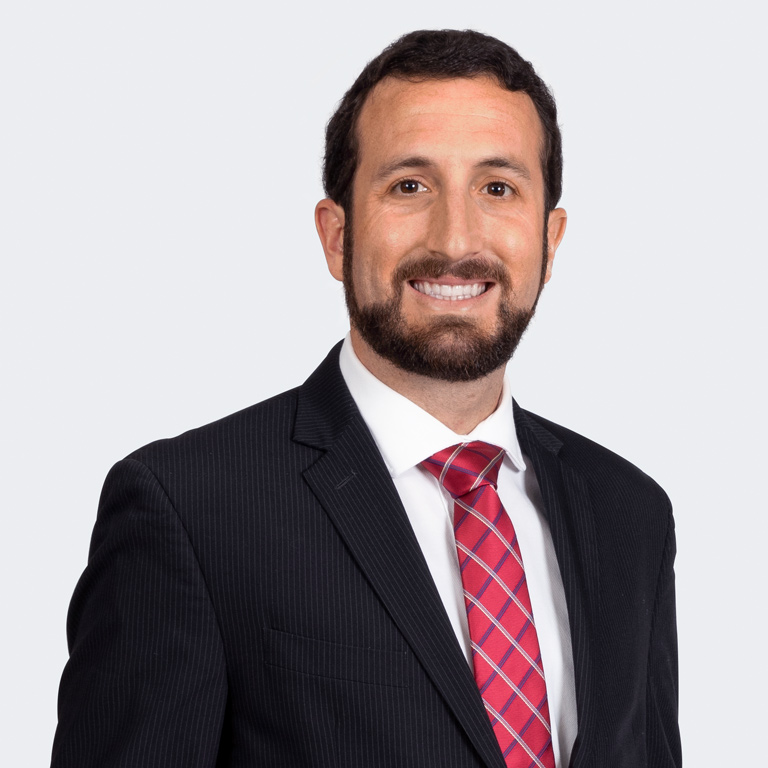Court Finds School Board Erred in Punishing Teacher for Political Activity on Social Media
Florida’s Fifth District Court of Appeal (Fifth DCA) recently determined...


Jeffrey Grosholz focuses his practice on education law, primarily aimed at representing school boards, as well as all aspects of education, employment, and labor law for clients in both the public and private sector. He currently serves as the school board attorney for the Baker County School Board in Florida. Jeffrey also handles constitutional litigation, and defends state and local government agencies against allegations of civil rights and tort violations. Jeffrey also represents clients in the pesticides and pest control industry.
Jeffrey participated in the RumbergerKirk Summer Associate Program in 2018. After graduation he clerked for the Honorable James A. Edwards of Florida’s Fifth District Court of Appeal. While in law school, he served as a judicial extern for the Honorable Mark E. Walker of the United States District Court for the Northern District of Florida.
RumbergerKirk attorneys Nicole Smith, Samantha Duke, and Jeffrey Grosholz secured a final summary judgment in MSPA Claims 1, LLC v. Tower Hill Prime Insurance Co. in the United States District Court for the Northern District of Florida. Plaintiff, an alleged three times removed assignee of a now-defunct Medicare Advantage Organization, sued Tower Hill Prime Insurance Company and Tower Hill Claims Services, LLC, for double damages under the Medicare Secondary Payer Act. Plaintiff claimed Tower Hill was a primary payer under the Act, but that it had failed to make payments for Medicare-covered services provided to the original assignor’s enrollee. This was one of a plethora of class action lawsuits Plaintiff and its related entities have filed in Florida, as well as elsewhere nationwide, seeking recovery under the Medicare Secondary Payer Act for payments that entities such as Tower Hill should have allegedly paid.
Plaintiff’s case was predicated on a single Medicare Advantage enrollee’s claim, although it alleged to have more. Early attempts by Plaintiff to force Tower Hill to engage in data matching that would, Plaintiff argued, prove the existence of these alleged other claims were denied by the court. After extensive discovery, both parties moved for summary judgment. Plaintiff also moved for class certification. Following a hearing on the competing motions for summary judgment, the court requested supplemental briefing on the applicable statute of limitations. Namely, the statute of limitations for the federal government’s cause of action under the Medicare Secondary Payer Act is three years, whereas the Act is silent as to the private cause of action’s limitations period. The court thus asked the parties for argument on what the applicable statute of limitations should be. Both parties submitted additional briefing on the matter, with Tower Hill arguing, in part, that the government’s three-year statute of limitations should be borrowed while Plaintiff argued the six-year statute of limitations applicable to actions brought under the False Claims Act should be used.
After consideration, the court granted in part and denied in part Tower Hill’s motion for summary judgment, finding that Tower Hill Claims Services, as a third-party administrator, was entitled to summary judgment. But the court rejected Tower Hill’s argument that the government’s three-year statute of limitations was applicable; the court, however, left the question of the applicable statute of limitations open. Tower Hill subsequently moved for reconsideration, arguing that if the court were to borrow from state law, i.e., if it used Florida’s general limitations statute, a four-year statute of limitations would apply and Plaintiff’s claim would still be time-barred. The court decided to construe Tower Hill’s motion for reconsideration as a new motion for summary judgment, and allowed the parties to provide further briefing on the matter.
On the eve of the hearing on Plaintiff’s motion for class certification, the court handed down an order granting Tower Hill’s motion for summary judgment. Specifically, the court found that Florida’s limitations statute was more analogous to the Medicare Secondary Payer Act’s private cause of action than the False Claims Act, and thus a four-year statute of limitations applied. Having determined the appropriate statute of limitations, the court accordingly found that Plaintiff’s case could not survive because outside its single, time-barred exemplar claim, Plaintiff could not point to any other specific claim. As such, the court found Tower Hill was entitled to final summary judgment.
The court’s ruling is significant in that it represents one of the only instances where a court has analyzed—and actually answered—the question of the applicable statute of limitations in a case brought under the Medicare Secondary Payer Act’s private cause of action. This is noteworthy because, while the passage of the PAID Act in December 2020 has made it easier for primary payers to learn of the existence of Medicare Advantage Organizations—and, hopefully, to avoid instances where enrollees’ costs are not reimbursed by the proper entity—the continued absence of a statute of limitations for the private cause of action within the language of the Medicare Secondary Payer Act itself means entities still must turn to the courts and caselaw for this answer. Accordingly, this ruling in favor of Tower Hill stands as a marker entities can point to in defending claims such as these.
Florida State University College of Law — J.D., magna cum laude, 2019
Florida State University — B.A., History, cum laude, 2010